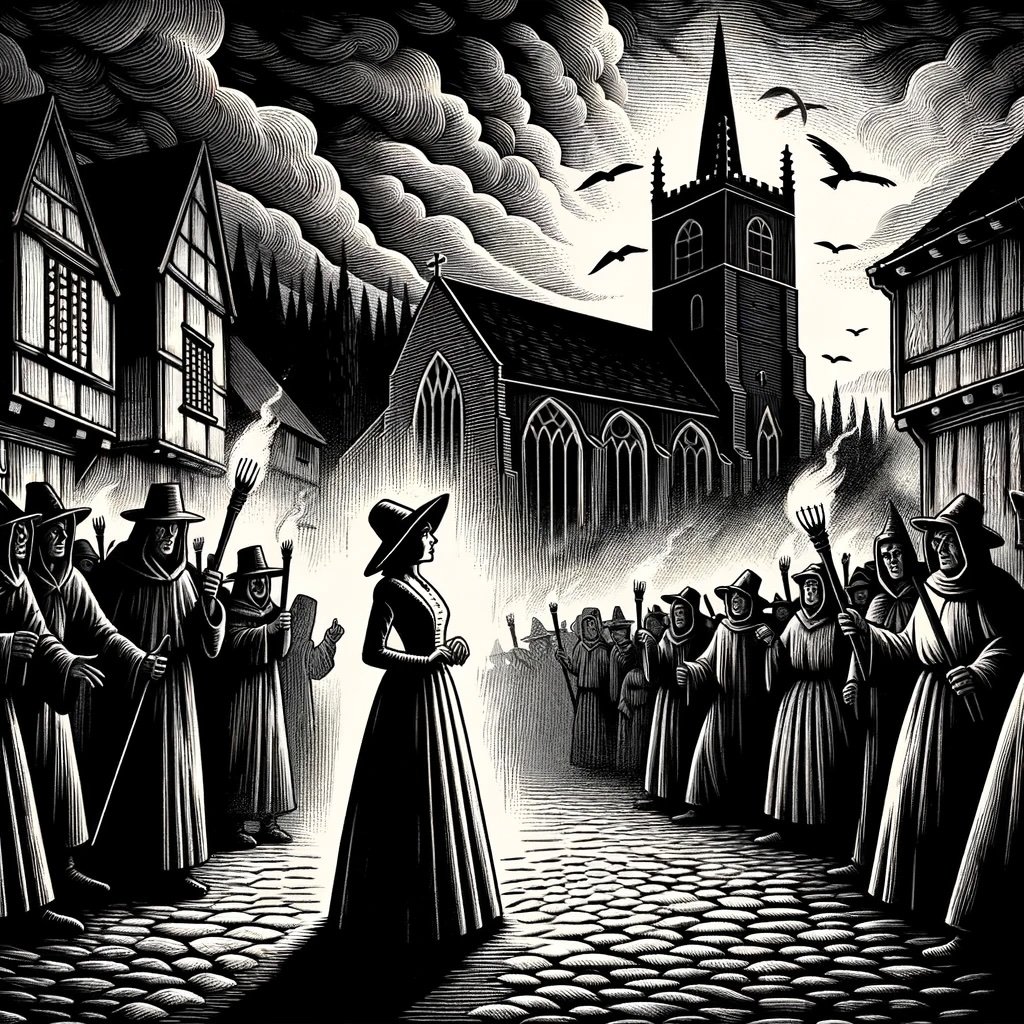If I told you there were aliens in my computer writing these daily posts, would you demand proof before you believed me? Of course you would, because your a sane and logical person. Thankfully, there are no aliens in my keyboard, but this question teaches us something valuable about reading. If an author makes a claim, you expect that person to back it up with some solid evidence. But this can go awry – and usually does. Read an X (Formerly Twitter) thread and you’ll see the nuttiness out there.
For example, between the years 1427 and 1782, some 30,000 to 60,000 women were convicted and executed for being witches (English Heritage). How is this possible? An “authoritative” voice (the church) blamed these women every time a storm flooded the streets, a child was born lame, or a crop was diseased by insects (Spencer). The population, whipped into a mad furry, committed a fallacy (an error in logic) by making these women prove they weren’t witches. How can one prove one’s not a witch? Hint – you can’t.
In fact, each woman was tortured until admitting her false guilt and giving the church more names of supposedly witchy women to burn (Spencer). Once this information was received, she was executed for her imagined crimes. These deaths happened because of The Burden of Proof fallacy.
The Burden of Proof fallacy says that if someone make a claim, it’s their responsibility (or burden) to offer evidence for the validity AND truth of the argument – not yours! In Latin, it’s Onus probandi incumbit ei qui dicit, non ei qui negat which means
The burden of proof rests on the one who says, not on the one who denies (Burden of Proof).
Now, on to the good part. A book is nothing more than a series of claims by the author. Next time you read a book, ask yourself if that author is doing his or her job by supporting their claims with solid evidence, or if they’re spouting unjustified drivel and expecting you to go along for the ride until you can prove them wrong. You’d be surprised. A lot of books are filled with baseless claims which gain momentum from preying on your emotions as a reader. And yes, ‘preying’ is the right verb here. Toss those books into the flames and spend your time with authors who have done their homework, have credible sources, and make sound arguments. Stop burning innocent people online, at work, and in the streets just because you read someone’s heated (excuse the pun) opinions.
Until tomorrow, read slowly – take notes – apply the ideas.
-Eddy
———————–
Work Cited:
Burden of Proof. https://encyclopedia.pub/entry/36589. Accessed 30 Apr. 2024.
Spencer, Erika Hope. Research Guides: French Women & Feminists in History: A Resource Guide: Witch Trials & Witchcraft. https://guides.loc.gov/feminism-french-women-history/witch-trials-witchcraft. Accessed 30 Apr. 2024.
“Witchcraft: Eight Myths and Misconceptions.” English Heritage, https://www.english-heritage.org.uk/learn/histories/eight-witchcraft-myths/. Accessed 30 Apr. 2024.

Published by